
In honour of National Aboriginal Day (June 21), we’ve asked members of the U of A community what the day means to them. Here’s what they had to say:
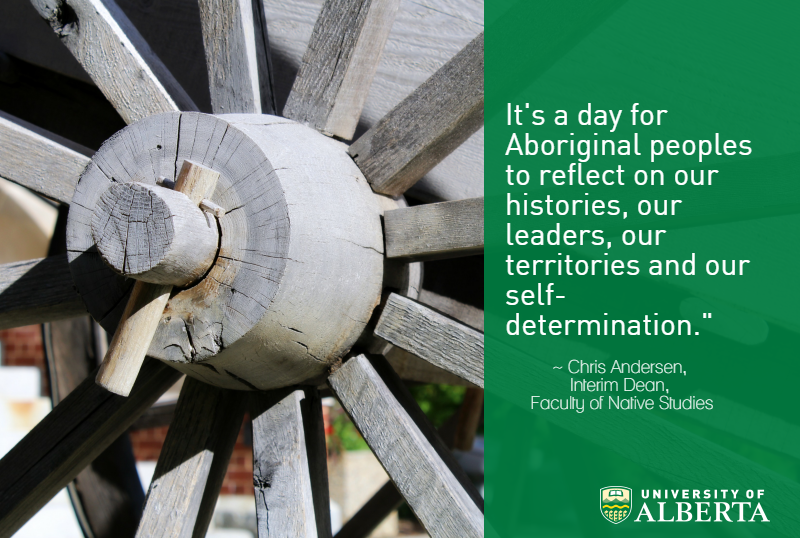
“National Aboriginal Day is important not only because it recognizes the valuable contributions of Aboriginal peoples to the country of Canada but also because it takes place during what is, for many Aboriginal peoples, a spiritually and ceremonially important time of year — summer solstice. As such, it is also a day for Aboriginal peoples to reflect on our histories, our leaders, our territories and our self-determination.”
– Chris Andersen, Interim Dean, Faculty of Native Studies
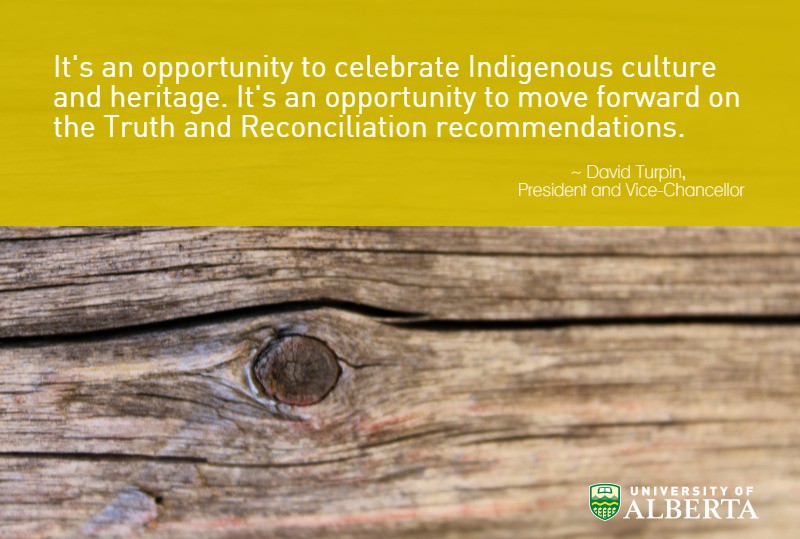
“Many things run through my mind. Mostly, it’s an opportunity. It’s an opportunity to celebrate Indigenous culture and heritage. It’s an opportunity to move forward on the Truth and Reconciliation recommendations. And it’s an opportunity to recognize the U of A’s role in reaching out to Indigenous students and communities to help build a better university, province, and nation.”
– David Turpin, President and Vice-chancellor, University of Alberta
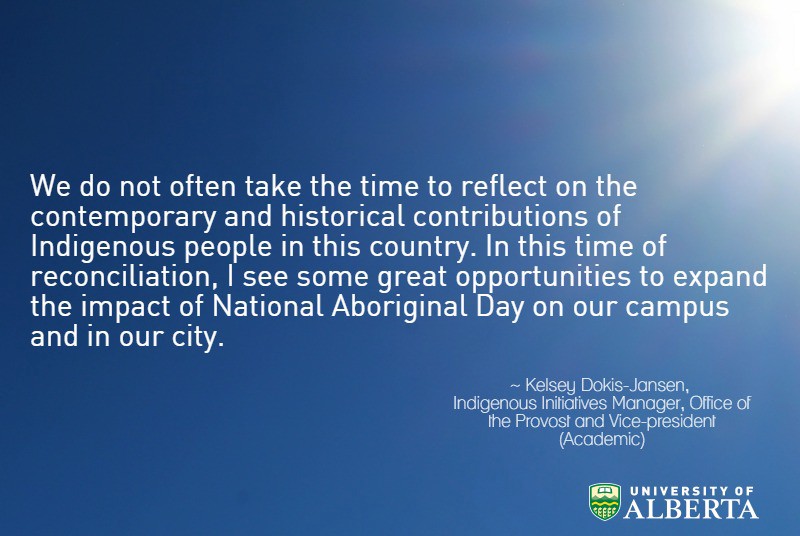
“I see National Aboriginal Day being really important in our communities. In our Indigenous communities, our offices close and the members of the community take the day to join community celebrations and gatherings. In the city, it can be a little harder because many people still have to work and we do not often take the time to reflect on the contemporary and historical contributions of Indigenous people in this country. In this time of reconciliation, I see some great opportunities to expand the impact of National Aboriginal Day on our campus and in our city.”
– Kelsey Dokis-Jansen, Indigenous Initiatives Manager, Office of the Provost and Vice-president (Academic)
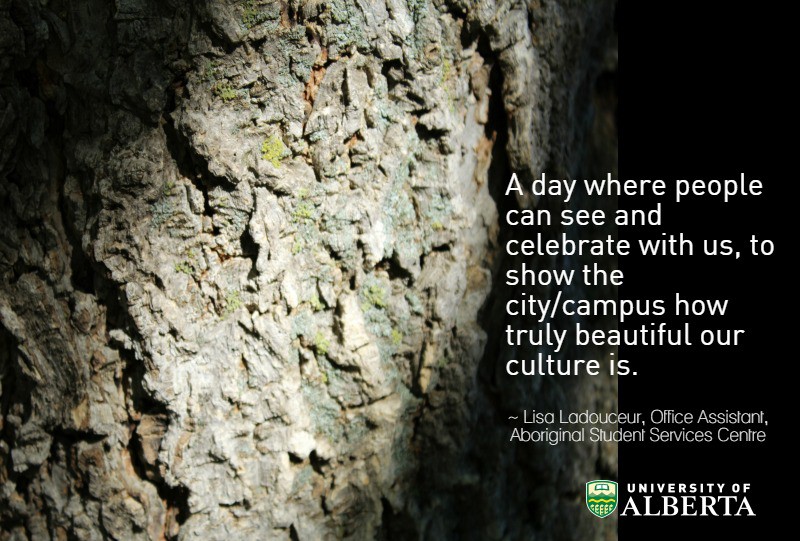
“A day where people can see and celebrate with us. To show the city/campus how truly beautiful our culture is. A day where First Nations, Metis and Inuit people can show their uniqueness and diverse cultures within. It really is a sense of pride.”
– Lisa Ladouceur, Office Assistant, Aboriginal Student Services Centre
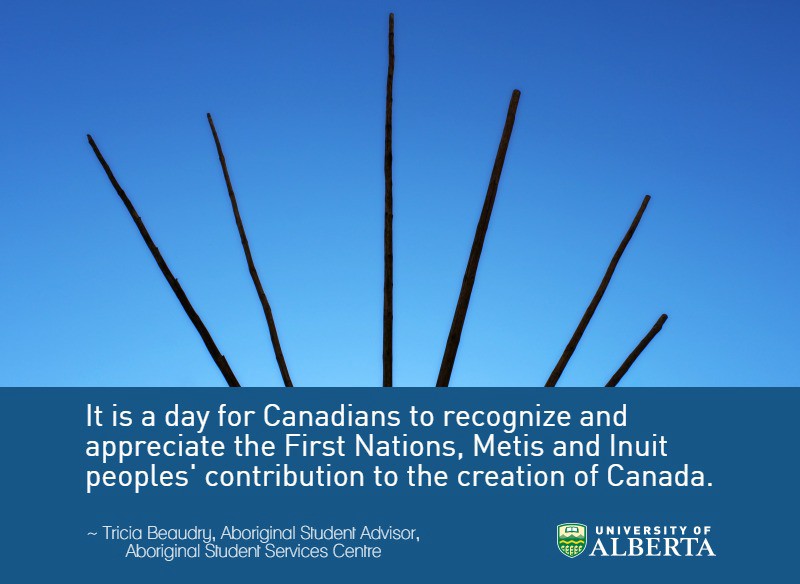
“National Aboriginal Day is a day to showcase the beautiful and diverse cultures of the First Nations, Metis and Inuit people. And it is a day for Canadians to recognize and appreciate the First Nations, Metis and Inuit peoples’ contribution to the creation of Canada.”
– Tricia Beaudry, Aboriginal Student Advisor, Aboriginal Student Services Centre
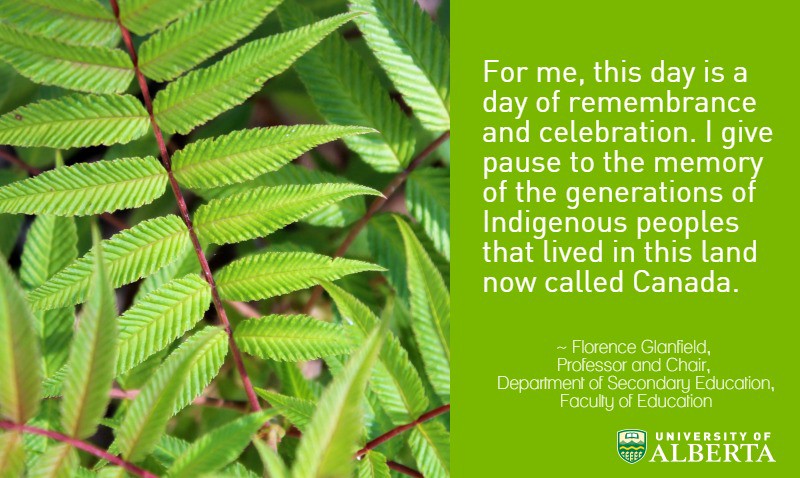
“For me, this day is a day of remembrance and celebration. I give pause to the memory of the generations of Indigenous peoples that lived in this land now called Canada. And, I celebrate the ongoing contributions of Indigenous peoples.
I see the TRC’s Calls to Action as an invitation to the entire country to live a different narrative with Indigenous peoples; a narrative that recognizes individuals as human beings and a narrative that requires new actions by governments, organizations, and individuals. My reflections require me to ask myself about my role and the ways in which my actions will contribute to living that different narrative.”
– Florence Glanfield, Professor and Chair, Department of Secondary Education, Faculty of Education
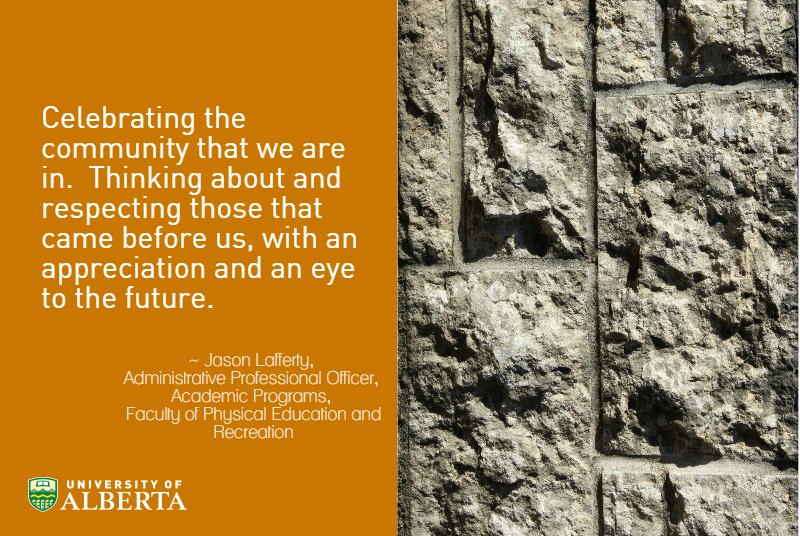
“Celebrating the community that we are in. Thinking about and respecting those that came before us, with an appreciation and an eye to the future.”
– Jason Lafferty, Administrative Professional Officer, Academic Programs, Faculty of Physical Education and Recreation
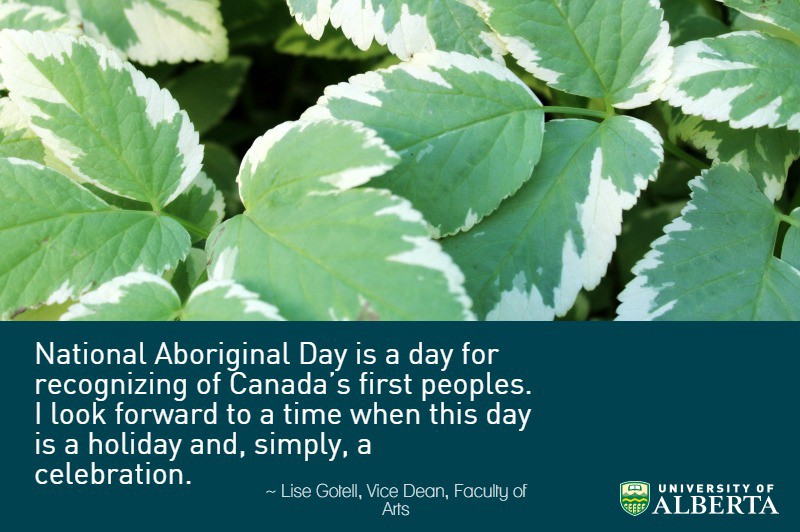
“National Aboriginal Day is a day for recognizing of Canada’s first peoples. I look forward to a time when this day is a holiday and, simply, a celebration. For now, however, there is too much to be done, especially for settler Canadians. Colonization has left a legacy of dispossession for indigenous peoples. Settler Canadians have a responsibility to do more than simply understand and acknowledge. I hope that National Aboriginal Day will remind us of our duty to proactively engage in reconciliation. I am proud that the University of Alberta has begun to take up this challenge, though I know we have a long way to go.”
– Lise Gotell, Vice Dean, Faculty of Arts
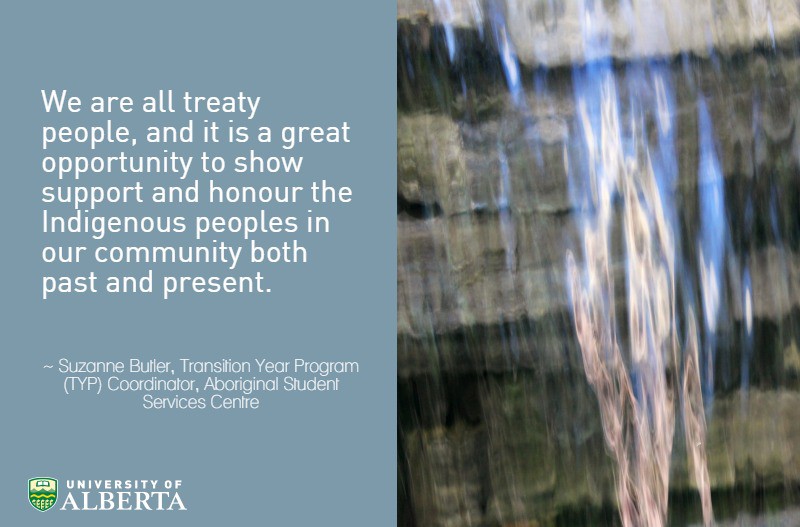
“National Aboriginal day for me is a day to acknowledge and celebrate the vibrant and thriving First Nation, Metis and Inuit cultures in the territory we now know as Canada. We are all treaty people and it is a great opportunity to show support and honour the indigenous peoples in our community both past and present. My favorite part of National Aboriginal day is heading downtown to take part in the festivities, check out the craft tables and re-connect with friends and community members. There is always delicious bannock and great performances!”
– Suzanne Butler, Transition Year Program (TYP) Coordinator, Aboriginal Student Services Centre
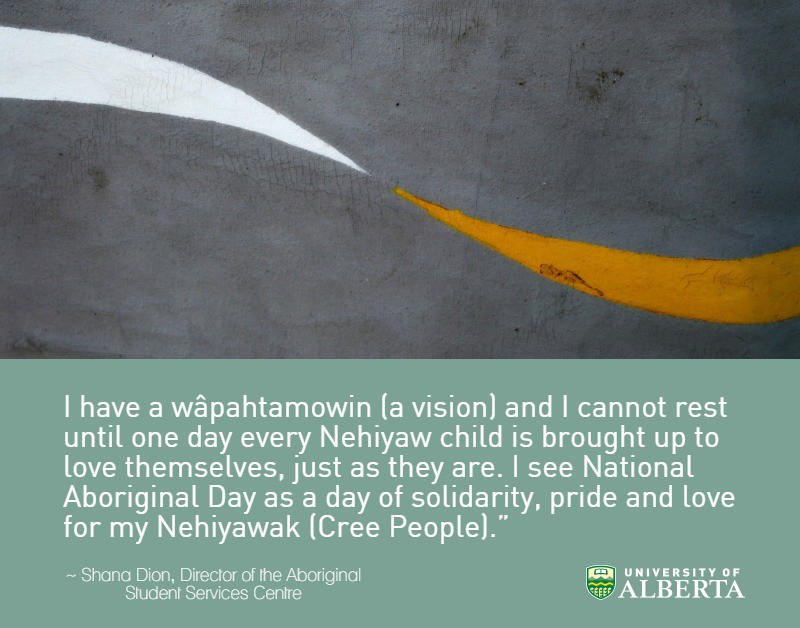
“Tânisi osâwâw acâhkos nehiyaw iskwew niya Kehewin Cree Nation ochi niya. Hello, my spirit name is ‘yellow star’, and I am a Cree woman from Kehewin Cree Nation. It is important that I introduced myself in Cree because it grounds me in who I am, where I come from and who I am accountable to.
I see National Aboriginal Day as a day of, Solidarity, Pride and Love for my Nehiyawak (Cree People)!
I have a wâpahtamowin (a vision) and I cannot rest until one day every Nehiyaw child is brought up to love themselves, just as they are. That nikosis (my son) will one day never be judged by the color of his skin but on his integrity.
The hope for National Aboriginal Day is that people’s eyes are opened up and the conversations change about what the reality was for the First peoples of this country! The hope for this day is for everyone to get out and attend events, to witness the beauty, to embrace our communal history, and to stop the hate for and ignorance of the First Peoples of Canada.
In my vision, there will come a day where there will be tremendous pride amongst our Nehiyaw youth that it will fill the hearts of our ancestors and liberate our grandmothers.
Reconciliation must support First Nations, Metis and Inuit peoples as they heal from the damaging legacies of colonization that have inflicted such devastation intergenerationally.
National Aboriginal Day in concurrence with Reconciliation must INSPIRE Aboriginal and non-Aboriginal peoples to force the culture within Canada to shift into a place that our children and grandchildren can live together in dignity and harmony on these lands we now share.”
– Shana Dion, Director of the Aboriginal Student Services Centre